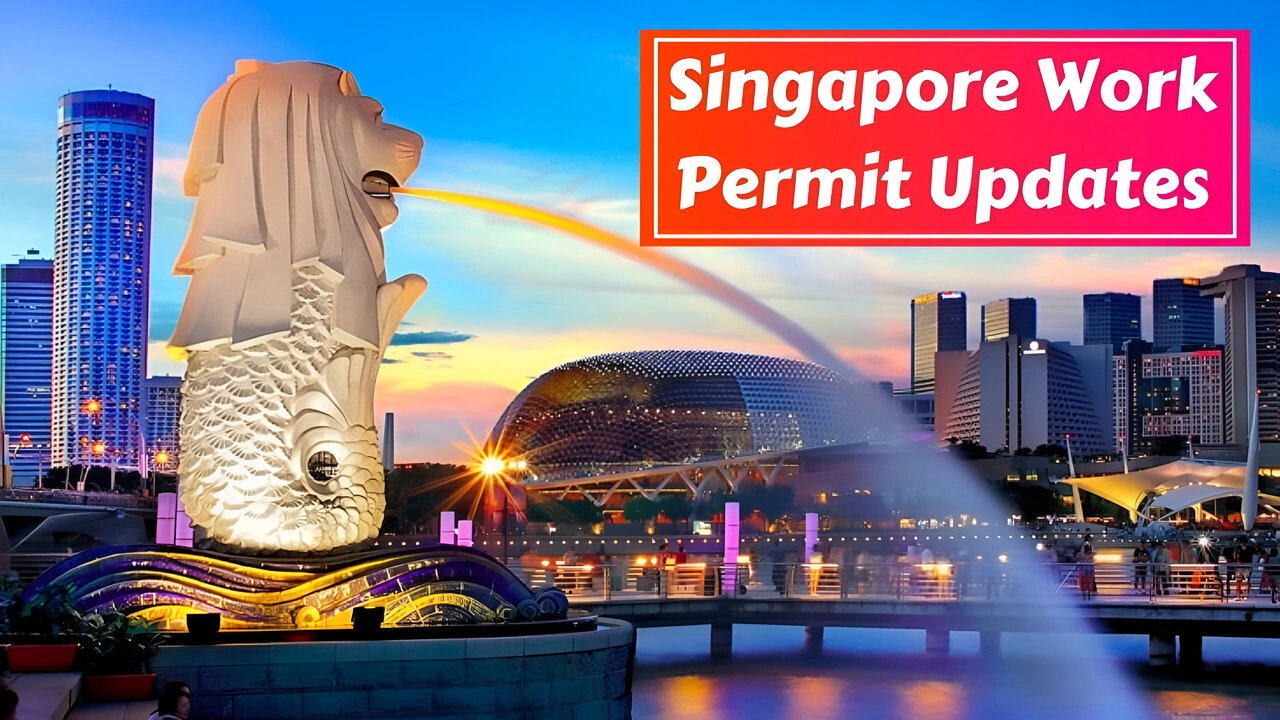In 2025, significant changes are set to affect foreign workers and employers in Singapore, especially concerning work permits. With evolving labor policies and an increasing focus on fairness and sustainability in the workforce, the government has introduced new regulations to enhance the experience of foreign workers while also addressing employer needs. These updates come amid an ongoing commitment to improving Singapore’s workforce and economy, ensuring a competitive, skilled, and equitable labor market.
For foreign workers and their employers, understanding the key work permit changes is essential. Whether you’re already employed in Singapore or planning to hire foreign talent, here’s everything you need to know about the latest updates to work permits.
Key Work Permit Changes for 2025
The Singapore government has introduced a range of policy changes aimed at streamlining the hiring process, improving labor market outcomes, and supporting foreign workers’ welfare. Here’s an overview of the most crucial updates.
Higher Minimum Salary Requirements for Work Permits
In 2025, the Ministry of Manpower (MOM) will implement higher minimum salary requirements for foreign workers under various work permit categories. This change is aimed at ensuring foreign workers are paid a fair wage that reflects the current cost of living and market conditions in Singapore. It also helps address concerns over wage disparity and enhances job quality for foreign workers.
- For S Pass Holders: The minimum qualifying salary for S Pass holders (mid-skilled workers) will increase to SGD 2,800 per month, up from SGD 2,500.
- For Work Permit Holders: The minimum monthly salary for workers in the construction, marine, and process sectors will be adjusted, with a focus on ensuring that workers in lower-skilled jobs are still adequately compensated for their labor.
- For Employment Pass Holders: While the minimum salary for Employment Pass holders remains unchanged at SGD 4,500, the government is tightening enforcement to ensure employers comply with these salary standards.
These adjustments will have a significant impact on employers who rely heavily on foreign labor, making it necessary to review budgets and wage structures to remain compliant.
Increased Levy for Foreign Workers in Certain Sectors
The Singapore government has also introduced an increase in the foreign worker levy in certain industries, such as construction, manufacturing, and marine. This levy is charged to employers as a way of incentivizing the hiring of local workers and reducing the dependency on foreign labor.
The increase in levies will require employers to assess their reliance on foreign workers and explore ways to balance their workforce with Singaporean employees. Employers who need to hire foreign workers will face higher operational costs, which could impact profitability and business decisions.
Changes in Dependency Ratio Ceiling (DRC)
The Dependency Ratio Ceiling (DRC) is a cap set by the Singapore government to regulate the proportion of foreign workers in relation to the total workforce. In 2025, the government will reduce the DRC in some sectors, including manufacturing and services, in line with its strategy to encourage the hiring of more local workers.
This reduction in the DRC will impact employers who have a higher percentage of foreign workers in their workforce. Companies will need to adjust their hiring practices to ensure compliance with these new limits, potentially leading to an increased focus on training and upskilling local talent.
Mandatory Skills and Certification Requirements
As part of Singapore’s long-term strategy to upskill its labor force and ensure that foreign workers can contribute meaningfully to the economy, employers will be required to ensure their foreign employees possess relevant certifications and skills. The government has set up programs to assist foreign workers in obtaining the necessary qualifications, but employers will be held accountable for ensuring their workers meet these requirements.
This initiative will ensure that workers are better prepared for roles in industries such as technology, healthcare, and construction, where technical skills are in high demand. It also provides foreign workers with opportunities for career progression, which can enhance job satisfaction and retention rates.
Longer Work Permit Duration for Skilled Workers
In 2025, there will be a new policy allowing skilled foreign workers to stay longer in Singapore under work permits. This change applies mainly to workers in industries such as information technology, engineering, and healthcare, where there is an ongoing demand for skilled labor.
By extending the duration of work permits, the government aims to retain talent in key sectors, helping businesses to maintain stability and continuity. This move is especially important for companies that need to ensure the continuity of their operations while also investing in employee training and development.
Focus on Worker Welfare and Protection
The Singapore government continues to prioritize the welfare of foreign workers, with updates in 2025 aimed at improving working conditions and support systems for these employees. Some of the key welfare-focused changes include:
- Enhanced Housing Regulations: Employers will be required to meet higher standards when providing accommodation for foreign workers, ensuring better living conditions.
- Improved Workplace Safety: There will be increased monitoring of workplace safety standards, particularly in sectors like construction and manufacturing, to prevent accidents and ensure workers’ safety.
- Support for Mental Health: The government is introducing initiatives to help foreign workers manage stress and mental health challenges, including providing access to counseling services and stress management programs.
These updates are designed to improve the overall well-being of foreign workers, ensuring that they are treated fairly and provided with a supportive environment.
What Employers Need to Do
Employers in Singapore need to stay informed about these new regulations and make necessary adjustments to comply with the updated work permit requirements. Key steps include:
- Review Wage and Salary Structures: Employers should assess whether their current wage structures align with the new minimum salary requirements and make necessary adjustments to remain compliant.
- Budget for Higher Levies and Compliance Costs: The increase in foreign worker levies may impact business finances. Employers should plan for higher operational costs and assess their reliance on foreign workers.
- Focus on Local Hiring and Training: To comply with the new DRC and ensure long-term workforce sustainability, employers should invest in the upskilling of local workers, creating more opportunities for Singaporeans.
- Ensure Worker Welfare Compliance: Employers must prioritize the welfare of foreign workers, ensuring that housing, workplace safety, and mental health support measures are in place.
Conclusion
The work permit updates for 2025 mark an important shift in Singapore’s approach to managing foreign labor. These changes are intended to promote a more sustainable and fair workforce while ensuring that businesses continue to thrive in an increasingly competitive market. For foreign workers, these changes bring opportunities for better wages, improved working conditions, and a more secure future. For employers, it’s crucial to stay up-to-date with these regulations and adapt accordingly to ensure compliance and attract the best talent.




